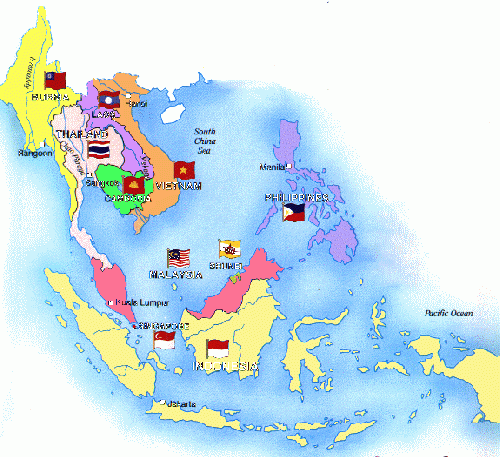Working in Singapore
Original Editors - Claire Adams as part of the UCD Final Year Project: What Next?
Top Contributors - Kim Jackson, Admin and Claire Adams
Application
- Apply direct to hospital HR department/ Ministry of Manpower
- Skype interview if applying directly to hospital HR department
- Ministry of Manpower
- http://www.mom.gov.sg/Pages/default.aspx
- Government organisation
- “A Great Workforce A Great Workplace”
- What – to achieve a globally competitive workforce and great workplace
- Why – for a cohesive society and a secure economic future for all Singaporeans
- Deal with employment passes, work permits etc.
- Interview with MOM (and hospital representatives)
- Won’t necessarily get a choice of hospital if you apply this way
- Offered job and accepted it
- Hospital sponsors and assists with application for employment pass (appx. 2-4 weeks)
- Copy of degree in English and Latin
- Jan 2011 – compulsory registration
- http://www.moh.gov.sg/mohcorp/speeches.aspx?id=25594
- Similar to our own professional body
- Unsure if registration will be difficult as foreign employees
Getting started
- Hospital pays for flights
- Shipping of belongings
- $1000 initial bonus
- Monthly housing allowance
- 2 weeks in a hotel (to allow you to locate suitable accommodation)
- NOTE: You have to pay this back if you don’t complete your contract
Health Check
- On arrival
- Bloods
- Urine
- CXR
- General Medical
- NOTE: Previous vaccination records are very important
Working Week
- 2 year contract (can extend; difficult to transfer hospitals due to sponsorship)
- 42 hour working week
- 8-5
- No breakfast/tea break
- Lucky to get lunch
- 21 days annual leave
- 11 public holidays
- Work one in every 4 Saturdays
- Wages: lower than Ireland but cost of living is less so it balances out
The Hospital
- Acute setting
- Various rotations – lasting 6-8 months
- General medical/surgical
- ICU
- Cardiothoracic/vascular surgery
- Orthopaedics
- Neurology
- Geriatrics
- OPD
- Sports
- Paediatrics
- Work phone – to keep in contact with mentor/colleagues
- Good support
- Online notes prior to starting
- Assigned a mentor
- Helpful colleagues
- Only Class A (income bracket) get air conditioned rooms – working conditions can be quite tough at times
Working day
- 16-18 patient/day (12 in ICU)
- OPD
- 30 min – initial assessment
- 20 min – subsequent session
- Therapy Assistants
- General Respiratory
- Some respiratory
- Some rehabilitation
- Some CP
- Suctioning is a favoured treatment – regular insertion of Guedell airways
Language barrier
- Official language: English
- Not with elderly patients
- Mandarin Chinese; Malay; Tamil (Indian dialect); Various Chinese dialects
- Language classes in some hospitals
- Language sheets (with important words/phrases)
- Translator usually available
The Health System
- Patients billed depending on which income bracket they are in – i.e. they pay some and the Government subsidise the rest
- Have to pay for everything. Therefore equipment e.g. acapella/flutter are not used.
- The hospitals are run like a business
- Daily stats – hospital calculate how much each patient would’ve paid for their physiotherapy
- Compared with wages
- Calculated whether they are making a profit or not
- Policy in place for everything – good environment to work in
- Efficient and Organised
“…on my first day I was given a distance chart. This is a map of the ward and it marks out exact distances around the place. So, if I mobilise a patient from their bed to the nurse’s station, I can look at my chart and document that it was exactly 34.5m. It’s precise and exact – that’s the way things work here! There are four exact wards on each of the 13 floors and the chart works for all. No room for errors!”
(UCD 2010 Graduate currently working in Singapore)
The Lifestyle
- Excellent social life
- Vibrant city
- Lots to see and do – great places to eat and fantastic shopping
- Good base for travelling around Asia
- Cheap flights
- Nice accommodation
- Apartments with pools, gyms, tennis courts etc.
- Slightly more expensive but worth it
- Huge Irish community
- GAA club
- Irish Dragon Boat team
- Irish bars
Singapore
- South East Asia
- Island country with 63 Islands
- Size: 274.2 sq. mi. (Ireland 32,595.1 sq. mi.)
- Population: appx. 5 million (36% foreigners (2009 census))
- Tropical Rainforest Climate
- Temp. 22-34 degree Celsius
- No seasons; high humidity; large rainfall!
- Currency: Singapore dollar 1 EUR = 1.77117 SGD







